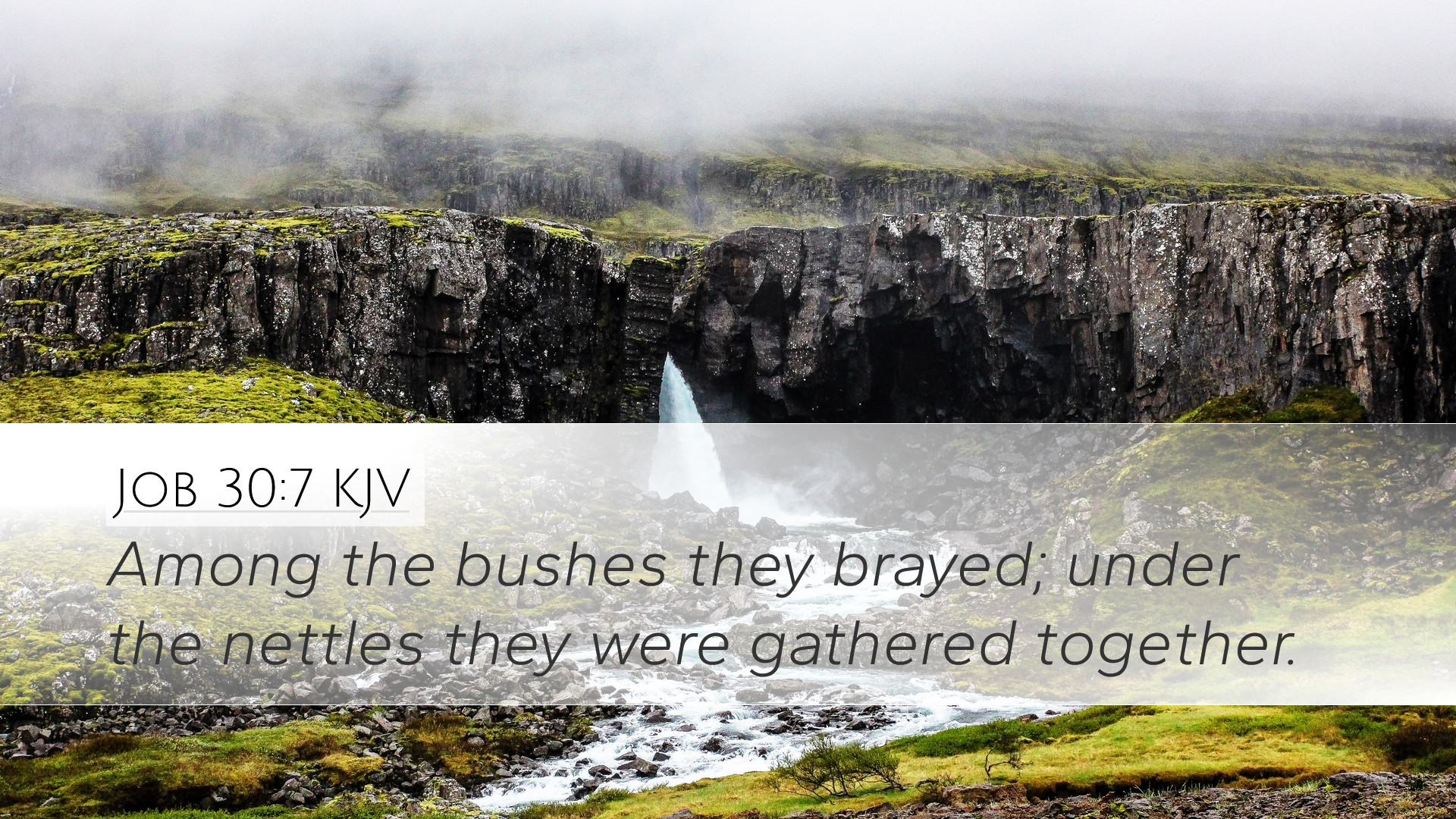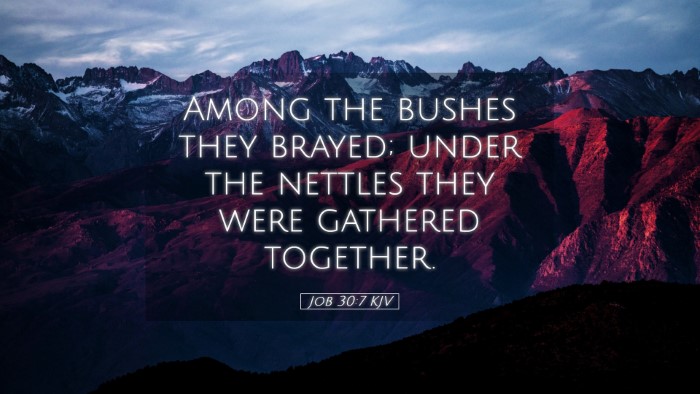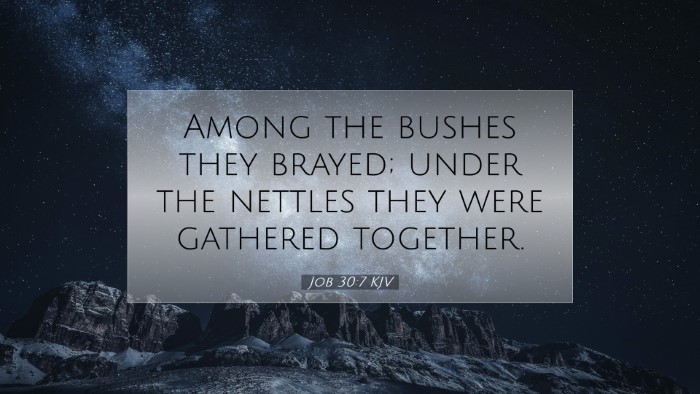Commentary on Job 30:7
Verse: "Among the bushes they brayed; under the nettles they were gathered together."
Introduction
The Book of Job presents a profound exploration of suffering, faith, and divine justice. In chapter 30, Job contrasts his current state of affliction with his past dignity. This verse, specifically, paints a vivid picture of despair and the scorn Job faces from those once beneath him.
Contextual Background
The verses preceding Job 30:7 describe how Job laments his current condition, filled with suffering and ridicule from those he once regarded as insignificant or lowly. The deep contrast between Job's past and present serves as a central theme in this chapter.
Exegesis of Job 30:7
Job uses metaphorical language to illustrate his degradation; he refers to the "bushes" and "nettles," natural elements that denote hardship and discomfort. The imagery suggests a wild, uncultivated place where the once prosperous Job finds himself surrounded by mockery.
Insights from Commentaries
-
Matthew Henry:
Henry observes that Job is emphasizing the scorn he now receives from those he once looked down upon. He notes, "Those who once had no voice now mock him, showing how completely his fortunes have turned." This reflects a broader theme of divine providence where the proud are often humbled.
-
Albert Barnes:
Barnes interprets the "brayed among the bushes" as a description of wild donkeys, symbolizing those who are brutish and devoid of dignity. He suggests that Job is expressing profound humiliation as he identifies himself with the rejected and ridiculed, implying that society has turned against him, as the once-respected have become beasts of burden to their scorn.
-
Adam Clarke:
Clarke emphasizes the physical aspect of Job’s torment. He asserts that the "nettles" symbolize pain and suffering, depicting how Job’s life has been overtaken by affliction. He further notes that these elements also reflect Job's isolation; he is surrounded by mockers who gather in his suffering rather than offering support, indicative of how public perception can shift dramatically in times of trial.
Theological Reflections
This verse encapsulates significant theological reflections on human suffering and divine justice.
-
Human Suffering:
The imagery Job uses serves as a testament to the pain felt in isolation. It raises essential questions about God’s role in suffering, particularly whether the righteous are ever forsaken despite their faithfulness.
-
Divine Justice:
Job's plight challenges the understanding of retribution theology common in biblical literature—wherein good is rewarded and evil is punished. Job's commentary in this verse serves as an exploration of the complexities of divine justice and the reality that the wicked may sometimes prosper while the righteous suffer.
Practical Applications
This verse is particularly relevant for pastors and counselors addressing suffering communities. It serves to remind them that:
- The shifts in social status are not indicative of one's intrinsic worth in God's eyes.
- Shame and humiliation can be a central part of the human experience, and supporting those in suffering requires empathy and understanding.
- Isolation in suffering is a universal experience, as evidenced by Job's lament, suggesting the need for community support and outreach.
Conclusion
Job 30:7 invites deep reflection on the nature of suffering, the transient perceptions of social status, and the enduring question of divine justice. The insights gleaned from public domain commentaries reinforce the importance of this text as we consider its implications for contemporary faith communities. In the experience of Job, we find a profound acknowledgement of human suffering, highlighting the need for compassion and understanding in the face of life's trials.


